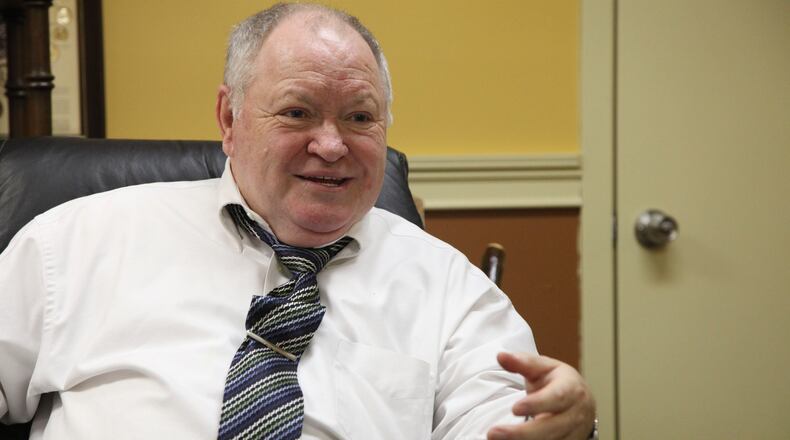Federal and state authorities just drove a stake through the heart of one of the most notorious charity scams ever to bilk the naive masses. Both Georgia's Secretary of State's office and Attorney General's office took part in bringing it down.
Credit: Johnny Edwards
Credit: Johnny Edwards
Last year the Federal Trade Commission and law enforcement agencies from all 50 states sued James Reynolds Sr. and his network of supposed cancer charities, accusing them of fleecing donors across the country for more than $187 million.
In heavy telemarketing and direct mail efforts, the charities promised to help breast cancer patients and dying children. But most of the money donated, according to the complaint, propped up lavish lifestyles for Reynolds and his family: Luxury cruises. Cars. Jet-ski outings. Disneyland trips. Six-figure salaries. College tuition. Gym memberships. Concert tickets. Dating website fees.
Reynolds' businesses even falsely inflated revenues in publicly filed financial documents to hide high administrative and fundraising costs, the complaint alleged.
The charade is over, the FTC announced this week. Under a settlement agreement, Reynolds' Cancer Fund of America and Cancer Support Services will be permanently dissolved and liquidated, and Reynolds is banned from charity and nonprofit work. He and his companies face a $75.8 million judgment, the amount unwitting donors forked over to his companies between 2008 and 2012.
Three executives, from Reynolds' companies and two related shams, are also banned from the fundraising world. One of them is Reynolds' son and another is his ex-wife.
"The FTC and our state enforcement partners have ended a pernicious charity fraud that siphoned hundreds of millions of dollars away from well-meaning consumers, legitimate charities and people with cancer who needed the services the defendants falsely promised," Jessica Rich, Director of the FTC’s Consumer Protection Bureau, said in a written statement.
The Reynolds case came up last year when, during the peak of the giving season, the AJC looked into what Georgia regulators do at the state level to protect taxpayers from charity scams.
The review found very little being done compared to other states. Fraught with turnover and a shrinking budget, Secretary of State Brian Kemp's Securities and Charities division hasn't instigated any major punitive action against a nonprofit or a paid solicitor in almost three years, the AJC found.
When asked what staffers have been up to, the division head cited helping the FTC with the Reynolds/Cancer Fund case, among other work. Georgia assisted, but did not take a lead role in pressing the litigation. Reynolds' operations were based in Tennessee.
However, the Securities division could be turning its track record around. The team appears to be bearing down hard on the Noah's Ark Children's Care Home in Henry County. A Channel 2 Action News investigation revealed Noah's Ark took in more than $650,000 in donations after the orphans' home had been shuttered.
As for the Reynolds case, it stands as a cautionary tale for anyone willing to whip out their checkbook when a charity pitch leaves a lump in their throat.
Most charities can be checked on CharityNavigator.org, which analyzes public filings and grades charities on a four-star scale based on accountability and how much of donations go to altruistic programs.
The Better Business Bureau's Wise Giving Alliance, at Give.org, flags charities that refuse to produce records about their finances and activities.
You can also check out Charity Watch, Guidestar and this FTC tipsheet.
About the Author
The Latest
Featured




